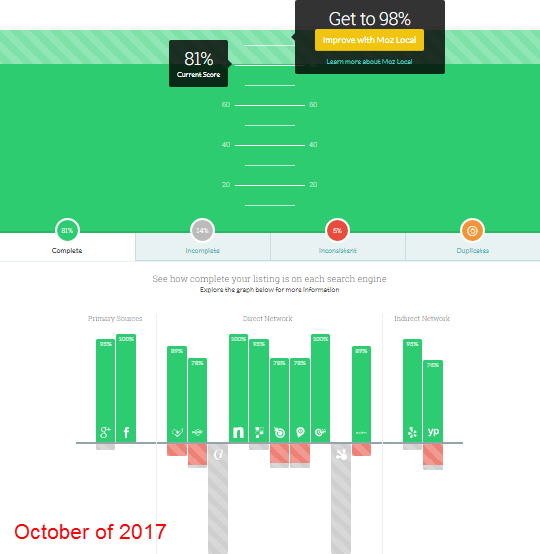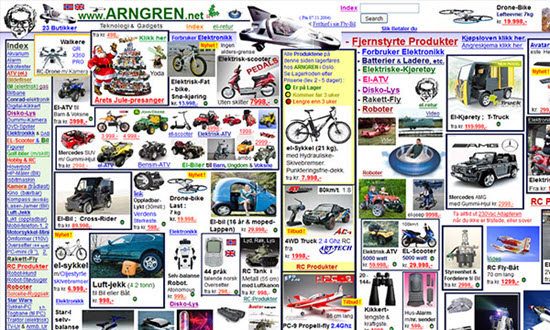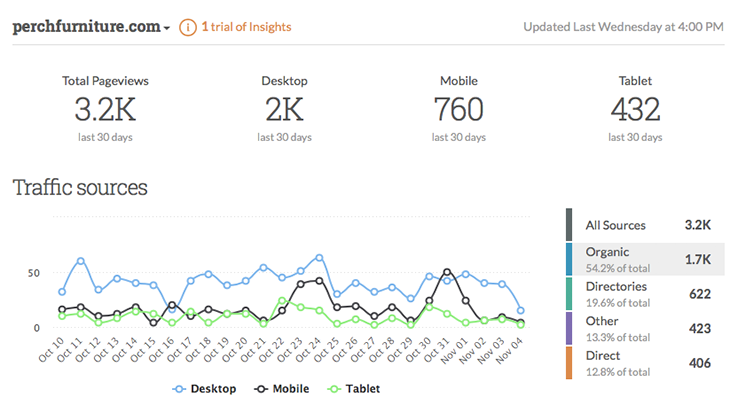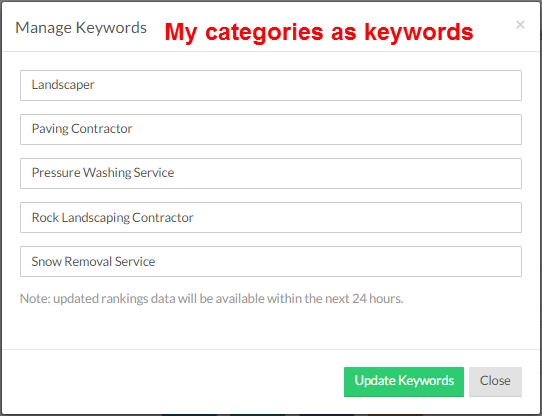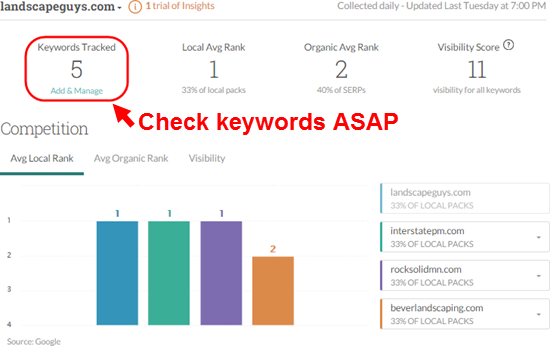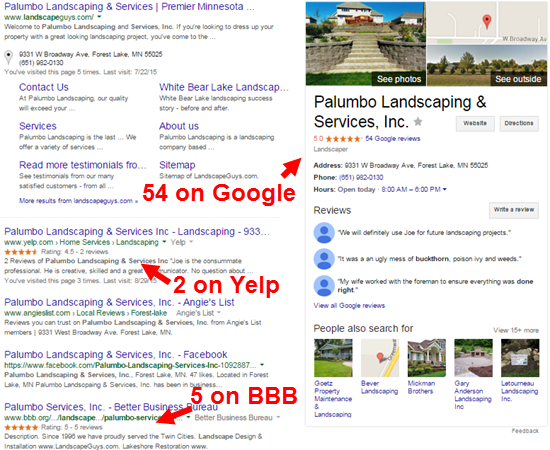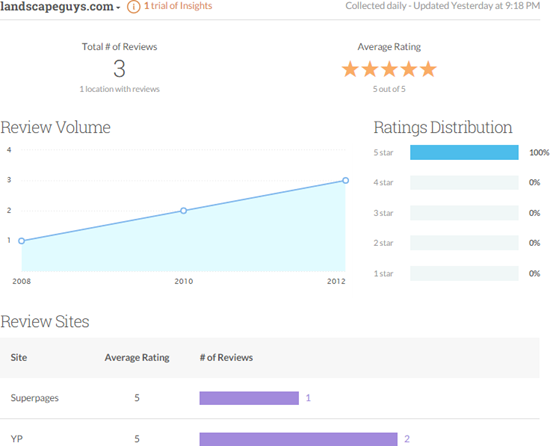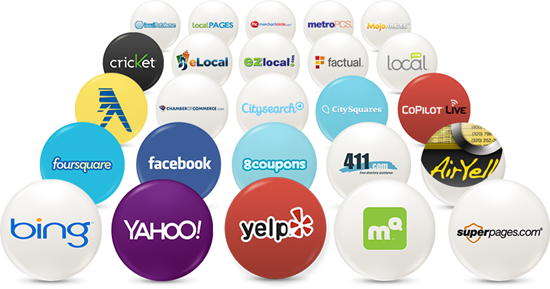
You’re more likely to get the results you want out of your local SEO effort if you don’t waste time on steps that won’t help, if the work doesn’t drive you crazy and make you stop because it’s not what you expected, and if you don’t hire a company to do the wrong kind of work.
Some terms and concepts floating around the local SEO space make those tasks harder for you to do.
I’m not saying they’re myths or “scams,” or even that they’ve got no merit. All I’m saying is those ideas might lead you down a rabbit hole unless you look at them differently.
In no particular order, here are the dumb terms and concepts that (in my experience) can make your local SEO effort a little less effective and a little more frustrating:
“SEO copywriting”
Refers to sucky writing that you’re not (too) embarrassed to have on your site, only because you think Google likes it.

I’m not saying you should ignore “keywords.” I am saying you shouldn’t work with someone who thinks SEO is just a matter of weaving keywords into copy. There’s effective writing, there’s weak writing, and there’s writing you weaken by making keywords go where keywords ain’t supposed to go.
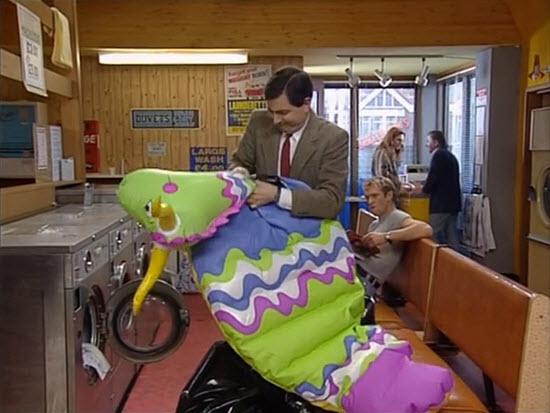
“Review management”
Do you do the best job you can for customers? Do you ask them for feedback, including in the form of online reviews? Do you occasionally read your reviews, and write simple owner-responses where appropriate? If so, then you’re “managing” your reviews just fine, and there’s nothing else to “manage.”
Pay a company for that and all they’ll do is send poorly timed, ham-handed emails to your customers, and write generic and unhelpful replies to reviews good and bad.
I understand that you might want to delegate some of the review-encouragement process. That’s fine. It’s smart to farm out certain pieces, if you can.
The mistake is to think of reviews as (1) unrelated to how you run your business, or as (2) just another chore you can hand off entirely. You’ll get more and better reviews, and get more out of them, and probably avoid a reputation meltdown if you’re at least a little involved. You’re in a good position (maybe the best position) to know who’s happy and who’s not, how and when to approach would-be reviewers, what to ask them to do, and how best to respond to an unhappy reviewer.
In time, someone in your organization could probably handle it all. But you should have at least a hand in grooming that person as your “Reviews Czar.”
“Listings management”
Again, there’s little or nothing to manage.
Got your Google My Business page set up properly? Good. Log into the dashboard every now, deal with Google’s annoying messages, and return your attention to the hard work of local SEO.
How about your non-Google local listings (e.g. YellowPages)? Yes, those are a lot of work to set up or to fix the first time. You may even need to put in a few rounds of work. Also, if you change any of your basic business info (name, address, phone #, or website URL) you’ll want to update your listings.
But to create listings and maybe update them if there’s a change in your basic info is not management. Do you “manage” your driver’s license?
It’s smart to get help on the one-time work, or if you need to update your listings. Just don’t pay for what happens between those milestones, because nothing happens then. All you’ll do is pay a sinecure.
“Link building”
This term has been a piñata for some time, so I’ll just take a kiddie swing at it. The trouble with the term “link building” is you’ll probably expect to exert control over every link you want: what domain it’s on, what URL it points to, what the anchor text reads, etc. Most good links you can’t belch out on command like that. If you try to hire someone who thinks that, it probably won’t end well. There’s only so much a third party can do.
At least in my experience, the right understanding of links is:
- They take more work than you’d like.
- You can’t control them as much as you’d like.
- You need to engineer your activities so it’s likely you get a good link out of the deal, but so you won’t consider your efforts a total waste if you don’t.
“Price per citation”
As in, “We can build you 100 citations on local directories for $200 – which is $2 per listing, which is 50% better than what our $3-per-listing competitors offer.”
That’s the wrong way to measure it.

A citation is not a citation. Some sites are much more important than others are, so some listings are more important to get right than others are.
What if you pay $100 less, but have to wait an extra 6 weeks for the company’s work to wrap up?
How much does it cost you to hire the lowest bidders, get sloppy work from them, and then have to pay someone else to do remedial work?
If you must get third-party help on your listings, pick the most-competent help, not the cheapest. If the competent one is too expensive, then you probably need to do the work in-house, because the cheapo company will cost you even more in the end.
“Freshness of content”
Should your site get bigger and better every year? Absolutely. Should you update old content, and continually try to improve content you can make more in-depth and helpful (in what I call “content CPR”)? I sure hope you do, because those steps can help you long-term.
But that’s not what most SEOs refer to when they say “you need fresh content.” They’ll tell you to tweak the content on your pages – not to improve it, necessarily, but just to make it different. Or they’ll tell you to churn out 9 blog posts every month – posts that not even mom will read. I call it the “content hamster wheel.”
To many SEOs, Google just likes a dusty workshop, and doesn’t care whether you actually created something in it. That’s easier to sell clients on, and it’s easier to bill them for.
“Local content”
Your pages need to be relevant to what you do for customers, and not just generic info about a city you serve.
Unless you’re a professional tour guide, nobody visits your site to read a Wikipedia-flavored history of the town. Few people care that Frank Sinatra once went to the bathroom there.
Make it relevant to your customer, to your business/services, and to the location – in that order of importance.
—
What’s a term or concept in local SEO that you consider crazy, and why?
Was there one you think I was too harsh on?
Leave a comment!


